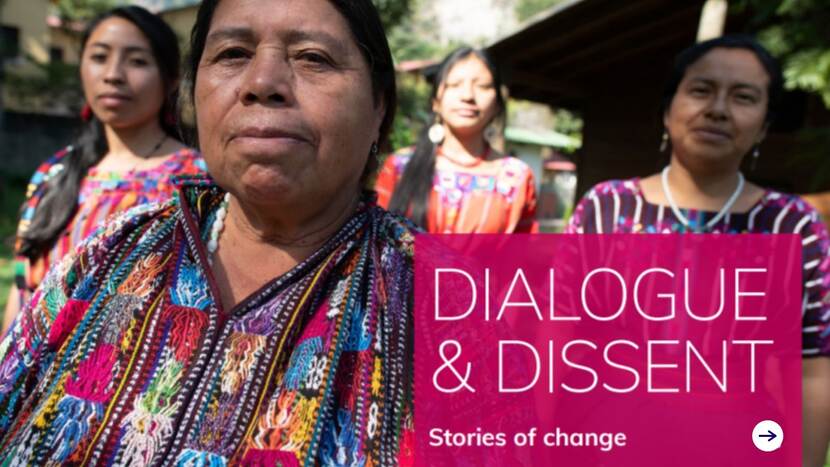Looking back on 5 years of Dialogue and Dissent
Over the past 5 years the Ministry of Foreign Affairs has worked with dozens of civil society organisations, supporting initiatives to reduce inequality, tackle corruption, address climate change, promote fair supply chains and safeguard human rights. The e‑zine Dialogue & Dissent: Stories of Change looks back on the Dialogue and Dissent programme and what it has achieved.
‘Even the power of a single voice can spark change, no matter how hopeless a situation may appear’, says Kitty van der Heijden, Director-General for International Cooperation. Since 2016, the Dialogue and Dissent programme has been supporting the political and autonomous role of civil society, which is crucial for a healthy democracy. ‘With the world reeling from the impact of the COVID-19 pandemic and freedom of expression under threat in many countries, it is now more important than ever that people are free to speak out.’
Fair pay
Under the Dialogue and Dissent programme, numerous initiatives have been organised to mobilise people, provide them with information and engage in dialogue with authorities. One successful initiative was the creative approach of the Dutch trade mission to Vietnam in 2019. Together with its partner organisation Fair Wear Foundation, the Dutch embassy organised a fashion show to raise awareness and promote sustainability at all levels within the clothing industry. The message was delivered with a nod to diversity thanks to the wide array of models, including LGBTI people, people with a disability and diplomats. Prime Minister Mark Rutte took the opportunity to draw attention to safeguarding the labour standards of the International Labour Organization, which Vietnam ultimately did in the trade agreement with the EU.
Hope and perspective
In over one hundred countries, freedom of association and expression are limited, for example through bureaucratic restrictions, censure or overt violence. New technologies are increasingly used to monitor and intimidate human rights defenders and peaceful demonstrators. The Netherlands is one of the few countries that actively support the independent role of civil society.
‘It sometimes took time and courage to find the right way in, but the results speak for themselves,’ says Kitty van der Heijden. ‘Following advice or pressure from civil society organisations, governments in various countries have improved their legislation or implemented existing laws more effectively. Businesses have also modified their policies in regard to environmental legislation and fair pay, for example. What we’ve achieved through the Dialogue and Dissent programme offers hope and perspective to individuals, local communities and society as a whole.’
